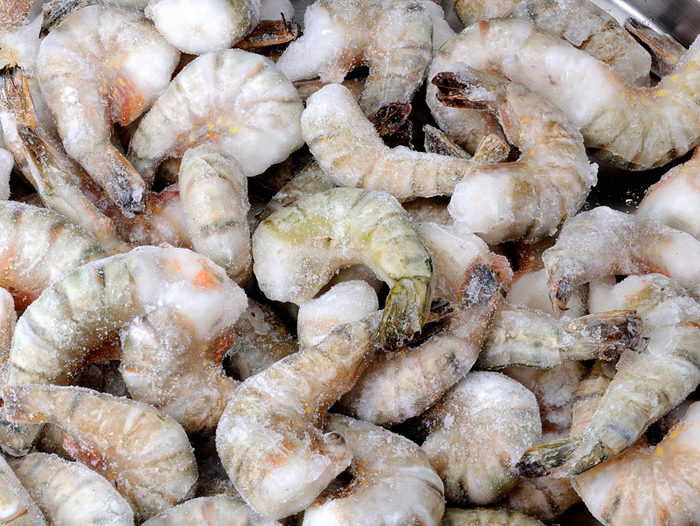New FDA Traceability Requirements to Take Effect in January 2026, Will Cover Shrimp
November 17, 2022 | 6 min to read

On Tuesday, the U.S. Food and Drug Administration (FDA) released a pre-publication version of a Federal Register notice setting forth the final traceability requirements to be imposed on products covered by the agency’s Food Traceability List. The final rule is scheduled to be formally published in the Federal Register on Monday, November 21st and the FDA has announced that the compliance date for the traceability requirements will be January 20, 2026.
The FDA’s pre-publication notice is 597-pages in length and includes comprehensive responses to the massive number of comments received in response to the proposed regulations issued by the agency in September 2020.
In the Federal Register notice, the FDA confirmed that shrimp would remain on the Food Traceability List and, as such, will be subject to the new traceability requirements. The FDA rejected arguments from seafood importers that the traceability rules should not attach to shrimp products because shrimp posed minimal health risks to U.S. consumers. The FDA also rejected arguments from importers that barring the importation of food that failed to abide by the traceability requirements violated the United States’ obligations under the World Trade Organization’s agreements. The agency explained that the traceability requirements were being applied both to domestic and foreign food producers.
In comments submitted to the agency in February of 2021 regarding the proposed traceability requirements, the Southern Shrimp Alliance requested that the FDA (1) amend the regulations to provide a specific exemption for sales of food directly by fishing vessels to consumers, consistent with the proposed exemption for sales of food directly from farms to consumers; (2) work collaboratively with the NOAA Sea Grant College Program to develop outreach programs for first receivers (unloading docks and fish houses) of seafood to assist in implementing the new requirements; and (3) create a new violation code, a unique ASC ID, and charge code for refusals of entry lines of imported food refused due to a failure to meet these traceability requirements.
In its response in the final rule, the FDA explained that fishing vessels are “not required to keep any records with respect to food obtained from a vessel that such person sells or donates directly to a consumer” pursuant to 21 C.F.R. § 1.327 and, in result, the regulations needed no further amendment. The FDA also reported that it was developing an outreach strategy and would work with outside groups, including other federal agencies, including NOAA’s Sea Grant College Program, as appropriate. Finally, the FDA observed that the agency is “developing our compliance and enforcement strategy for entities that fail to comply with” the traceability requirements, but that “{i}t is likely that we will establish a new charge code in FDA’s import system for processing entries to identify food that is refused entry . . . The publication of an import alert relating to violations” of the traceability requirements “would then include the charge code, along with a description of the applicable laws and regulations.”
The FDA declined requests from other members of the U.S. shrimp industry to exclude U.S. wild-caught shrimp from the traceability requirements. The FDA additionally declined a request from the Louisiana Department of Wildlife and Fisheries to increase the maximum amount of sales value a small food producer could have on an annual basis ($25,000) and qualify for an exemption from the recordkeeping requirements.
Because shrimp vessels are exempt from the traceability requirements, for most domestically-produced shrimp, record-making requirements begin with the first land-based receiver of the shrimp. The recordkeeping requirements for these unloading docks and fish houses are set out at 21 C.F.R. § 1.1335 of the new regulations:
§ 1.1335 What records must I keep when I am the first land-based receiver of a food on the Food Traceability List that was obtained from a fishing vessel?
For each traceability lot of a food obtained from a fishing vessel for which you are the first land-based receiver, you must maintain records containing the following information and linking this information to the traceability lot:
(a) The traceability lot code you assigned;
(b) The species and/or acceptable market name for unpackaged food, or the product description for packaged food;
(c) The quantity and unit of measure of the food (e.g., 300 kg);
(d) The harvest date range and locations (as identified under the National Marine Fisheries Service Ocean Geographic Code, the United Nations Food and Agriculture Organization Major Fishing Area list, or any other widely recognized geographical location standard) for the trip during which the food was caught;
(e) The location description for the first land-based receiver (i.e., the traceability lot code source), and (if applicable) the traceability lot code source reference;
(f) The date the food was landed; and
(g) The reference document type and reference document number.
Because the compliance date for these new requirements is January 2026, the industry will have two years to determine how best to implement these record-making and recordkeeping practices while keeping the burden imposed by the new regulations to a minimum.
Review the U.S. Food and Drug Administration’s announcement regarding the issuance of the Federal Register notice with final traceability requirements here: https://www.fda.gov/food/food-safety-modernization-act-fsma/fsma-final-rule-requirements-additional-traceability-records-certain-foods
Read the Southern Shrimp Alliance’s February 11, 2021 News Alert regarding its comments to the U.S. Food and Drug Administration on the proposed traceability requirements here: https://www.shrimpalliance.com/southern-shrimp-alliance-submits-comments-on-fdas-proposed-traceability-requirements/
| About the Southern Shrimp Alliance |
| The Southern Shrimp Alliance (SSA) is an organization of shrimp fishermen, shrimp processors, and other members of the domestic industry in the eight warmwater shrimp producing states of Alabama, Florida, Georgia, Louisiana, Mississippi, North Carolina, South Carolina, and Texas. |
